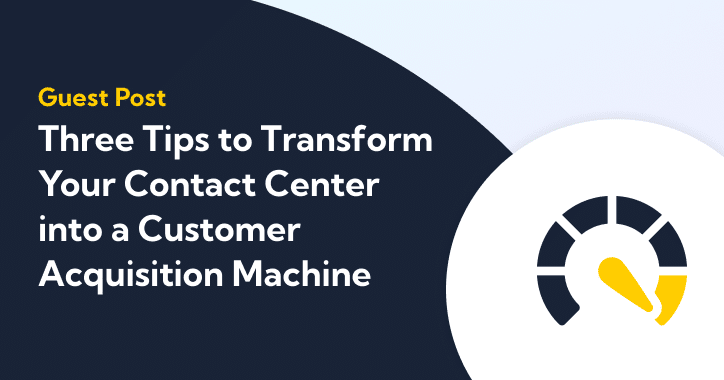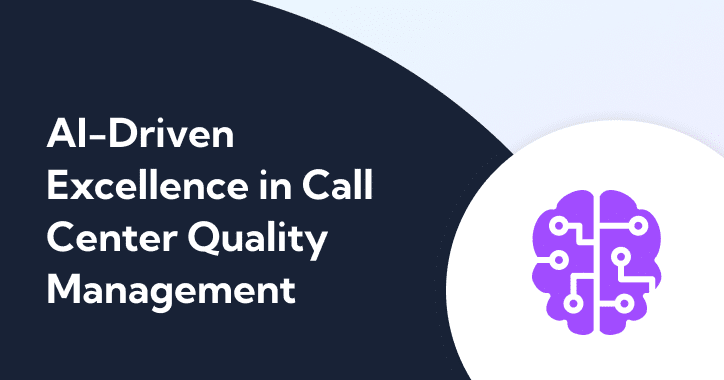In today’s uncertain market, the traditional approach to data collection and forecasting in sales just doesn’t cut it.
Customer preferences and expectations are always changing, and what could be trending in the market now might go down a dark hole a few weeks later.
Capturing these disturbances with manual data collection and analysis can be time-consuming and inaccurate. As a result, the predictive models that you get out of this aren’t likely going to help your sales team as much as you expect.
Enter revenue intelligence, a modern, AI-powered approach that automates and centralizes data collection, analytics, and forecasting in a single platform that eliminates siloed data and integrates your departments into a cohesive force to be reckoned with.
In this guide, we’ll help you understand what revenue intelligence is and how it can help your sales team boost sales and drive higher revenue. This is the future of sales!
What is Revenue Intelligence? Unraveling the Terminology
Revenue intelligence involves collecting and analyzing data with Artificial Intelligence (AI) for the purpose of extracting actionable insights that drive more sales and boost revenue.
Using a revenue intelligence solution, you can turn raw data into accurate sales forecasts that help you explore new opportunities and trends. Examples of data sets include sales site analytics, call data, buyer sentiment, and targeting data.
Today, many sales organizations are still heavily dependent on manual data collection and forecasting. Not to mention, the process is severely decentralized. Your marketing team is likely using separate tools and techniques from your sales team, which can make integrating data and actually getting something useful out of it challenging.
Revenue intelligence ditches the ancient method in favor of more advanced AI and ML-powered software that collects and analyzes data from sales and marketing interactions in a single pane of glass, making it easier for your team to spot patterns and gaps in your revenue operations. It provides complete visibility into the sales pipeline and delivers insightful reports that enable accurate forecasting and fuel better growth strategies and techniques.
RevOps (Revenue Operations) managers often have a hard time coordinating between different departments in their organizations. A revenue intelligence platform helps eliminate many of the obstacles RevOps face, enabling them to coordinate between sales, marketing, and customer success teams. It allows RevOps managers to analyze historical customer and sales data, create AI-powered model scenarios, and set revenue objectives accordingly.
By eliminating data silos and manual data analysis operations, RevOps can direct their efforts to what really matters: identifying and tackling problems.
Revenue Intelligence vs. Traditional Sales Analysis
Traditionally, sales teams relied on experience and guesswork to score more sales. This approach can be effective at times, but it’s risky and almost always results in missed opportunities.
Utilizing revenue intelligence enables salespeople to get real-time data-driven insights to point their efforts in the right direction and close more deals.
By utilizing the automated insights that revenue intelligence generates, your sales team will be able to prospect more accurately and foster long-lasting relationships with customers by addressing their pain points.
The Integral Role of Conversation Intelligence
Conversation intelligence plays a crucial role in assisting your salespeople to understand their customers’ behavior and respond appropriately.
Merging Dialogue with Data: A New Sales Paradigm
Conversation intelligence software utilizes Artificial Intelligence (AI) and Machine Learning (ML) to analyze customer calls and extract useful insights. A Natural Language Processor (NLP) transcribes the conversation to make it readable by AI. Then, ML algorithms identify patterns and classify data to eliminate guesswork and provide a more meaningful and consistent customer experience.
With conversational AI, you can understand the root causes behind lost sales and common problems customers face when they interact with your business. You’ll also be able to identify the strengths and weaknesses of your sales agents to create personalized coaching sessions.
Using conversational analytics, you can monitor whether your reps are adhering to your internal guidelines and compliance procedures. For example, conversation intelligence tools can automatically scan conversations and detect whether any agents are deviating from the script.
What’s more, conversation intelligence provides your agents with real-time assistance during calls, offering on-the-job coaching that drives revenue. It also accelerates rep onboarding with real-world examples from recorded calls.
How AI and Software Propel Revenue Intelligence
If you ask a salesperson whether they know anything about revenue intelligence, there’s a good chance that the answer will be no.
The concept of revenue intelligence has been around for a while. However, until recently, it was more of a theory – the technology wasn’t here yet. However, with the rise of AI systems and software, revenue intelligence has transformed from theory into practical software platforms.
The disruption that AI caused in sales enablement and other industries paved the way for the introduction of revenue intelligence as a separate class of tech solutions.
With the power of AI, machine learning, and predictive analytics, revenue intelligence software is capable of analyzing big data from multiple resources and transforming them into forecasts and insights that help sales reps spot trends and patterns, all without the footprint that such a process would take when done manually.
With a revenue intelligence platform, you’ll be able to:
- Point the efforts of your sales team in the right direction
- Prospect more accurately based on revenue impact
- Identify the most recent customer preferences and make adjustments to your product accordingly
- Use AI to automate mundane tasks, boost productivity, and keep your team focused on communicating with your customers with the right strategy in a timely manner
- Create accurate semi-annual or annual revenue targets
- Maximize the efficiency of your sales cycle and boost revenue
- Estimate the value of your pipeline based on your most recent closed deal rates
- Understand if the time it takes to close a deal is optimal for your revenue generation
- Identify missed opportunities and gain insights on how to prevent issues from recurring
As you can probably tell by now, AI-powered revenue intelligence is a game-changer. It has taken revenue generation and customer success to a whole new realm, where you and your team are on top of market changes and shifts in consumer preferences.
Experiencing the Benefits: Tangible Outcomes of Revenue Intelligence
Implementing a revenue intelligence solution in your sales strategy can have a positive impact on your reps’ performance and revenue values.
Supercharging Sales Teams: Boosting Productivity Through Insights
Time is a finite resource, and in most organizations, salespeople aren’t really utilizing it as they should.
Revenue intelligence software provides guidance for your agents, evaluating the effectiveness of their efforts so they drive better results by focusing on value-adding activities. It also generates more accurate sales forecasts that provide sales reps with the intel they need to plan their strategies and maximize efficiency.
For example, instead of relying on gut feeling to predict which prospects are more likely to answer a sales call, revenue intelligence eliminates the guesswork by providing your agents with a list of prospects to call based on the likelihood of them picking up their calls.
Additionally, revenue intelligence collects and analyzes behavior to determine whether a prospect is ready to take action and actually buy your product or service. It also enables your agents to focus on the active deals with the highest chance of success.
All of these insights become readily available to your agents on a silver platter before they even start working, enabling them to make the most out of their workday.
Refining Sales Coaching: Tailored Feedback Mechanisms
The sales process isn’t a straightforward one. Customer interests are always changing, and if you don’t clearly explain to your sales team what they’re doing wrong, expect your sales performance to go downhill.
Revenue intelligence has revolutionized sales coaching by allowing sales leaders to identify behaviors and skill gaps holding their salespeople back. The entire process is automated – you don’t need to listen to endless call recordings to figure out what your rep’s weaknesses are.
A revenue intelligence platform will provide you with this information in the form of detailed reports with actionable insights that you can start integrating into your coaching program immediately and provide quick feedback to your reps.
Further, sales reps can independently develop their skills and strategies by accessing the insights provided by the revenue intelligence platform. They can also listen to their previous interactions with customers and improve their sales pitches.
How Revenue Intelligence Spurs Growth
If your goal is to strategically grow your business and compete more fiercely, revenue intelligence can be your best asset. It supports better decision-making among sales managers and RevOps managers, which fuels revenue growth.
By understanding customer behavior and sentiments, you’ll be able to create a customer-centric sales approach that enables your team to provide customers with what they expect to hear.
Here’s how revenue intelligence can help your organization grow and scale:
- Unlock more opportunities: Revenue intelligence software analyzes prospects’ behavior and needs to uncover hidden sales opportunities and drive growth. If you don’t discover those low-hanging fruits, your competitors will. Revenue intelligence gives you a competitive advantage by minimizing lost deals.
- Gain centralized visibility: By automating data input and ensuring data accuracy, revenue intelligence software provides a single source of truth that your team can rely on for faster and better decision-making.
- Eliminate guesswork: In the modern sales landscape, gut instincts are insufficient. Revenue intelligence provides your reps with insightful reports that inform their sales strategies, enabling them to eliminate guesswork and rely on accurate forecasts that help them close more deals.
- Align your team with common goals: Ensuring that your revenue teams are aligned will help you achieve your revenue objectives and grow your operations. Revenue intelligence evaluates your sales processes to identify problems and areas of improvement so you can take corrective action.
- Foster a coaching culture: Revenue intelligence helps you create personalized coaching programs to keep your team members engaged and motivated. This culture of coaching helps you tackle performance issues as they arise and continuously develop your team’s skills, allowing you to expand your team and scale your business.
What Challenges Does Revenue Intelligence Address?
Revenue intelligence can help your organization overcome obstacles that hold back your sales performance and revenue generation potential.
Breaking Down Data Barriers
Here’s what’s wrong with relying on a Customer Relationship Management (CRM) platform: it’s heavily dependent on manual data entry.
So, while a CRM solution can definitely benefit your reps, you wouldn’t expect them to waste their working hours inputting data instead of making calls. This results in data blind spots and gaps that will remain there indefinitely, unless you do something about them.
Revenue intelligence helps you fill data gaps by automatically collecting, analyzing, and presenting data and insights in real-time, eliminating manual data entry and allowing your reps to focus on customer communication.
Unlike CRM solutions, revenue intelligence doesn’t rely on manual data input, ensuring that no single piece of data slips without turning it into something useful. Further, it integrates your teams and functions into a unified platform to get rid of data silos.
Revenue intelligence software also continuously updates data, ensuring real-time access to insightful analytics and accurate predictive models.
Up-skilling for Success: Addressing Talent and Training Needs
Your sales reps are your most valuable resource, which is why investing in their professional growth and development is vital for driving more revenue.
The tricky part is that without fully understanding the strengths and weaknesses of each agent and how they interact with prospects and customers, creating tailored coaching programs can be challenging.
Revenue intelligence platforms provide you with complete visibility into your sales team’s performance, highlighting the causes of lost sales and where each agent falls short. By using the performance insights generated by your revenue intelligence tool, you’ll be able to personalize your coaching approach for every individual agent, ensuring the highest ROI for your efforts.
Additionally, it’s important to distinguish between coaching and training as these terms are used interchangeably. Training involves providing your agents with new information that they must know to understand their job functions. It’s about telling your agents what they don’t already know.
Coaching, on the other hand, places more emphasis on behavioral changes. It’s a more practical approach that helps your agents put what they’ve learned in their training sessions into practice.
Conversation analytics leverage AI and ML to evaluate recorded sales calls, determine the root causes of customer loss, and provide guidance on what needs to be done to empower the agents to improve their behavior in future interactions.
Automating Insights: From Raw Data to Actionable Strategies
Forecasting based on manual data collection and analysis processes can be both inaccurate and resource-intensive. Hence, many organizations tend to settle for quarterly forecasts to reduce costs.
In today’s market, this approach isn’t enough. Customer preferences are always changing, and market dynamics are always evolving. Without daily or weekly forecasts, your sales team won’t be able to capture the rapid changes in the market that can really help them up their sales game.
With automated insights and forecasts from revenue intelligence, sales reps can quickly identify short-term trends and act accordingly, which can significantly boost revenue and help reps meet their targets.
A revenue intelligence platform also enables go-to-market teams to harness the power of data in prospecting more accurately and efficiently. Additionally, it helps them deal with arising customer issues, leading to better customer relationships and a more consistent revenue flow.
Pioneering a Revenue Intelligence Culture
Building a revenue intelligence culture starts by getting everyone from your sales, marketing, and customer success on the same page. The purpose behind this is to eliminate data silos and integrate data into a centralized platform.
The best approach here is to demonstrate the effectiveness of revenue intelligence and how it can help your teams work less and deliver more.
Nevertheless, keep in mind that you can’t really force a cultural change out of nowhere. Creating a culture centered around revenue intelligence and customer success takes time and consistent effort. The key here is to get everyone involved and engaged with interactive coaching sessions, practical workshops, and fruitful meetings with clear outcomes.
Embracing the Future with Revenue Intelligence
Despite all the great benefits revenue intelligence has introduced to the sales process, it’s still a relatively new concept with limited adoptions. Many organizations around the globe have already developed a revenue intelligence plan but with limited or no implementation.
The main implementation challenge is purely structural. It’s not always clear to leaders who are supposed to be responsible for revenue intelligence. This is largely due to an improper understanding of what revenue intelligence is.
Increasing awareness about revenue intelligence and its functions should help accelerate its adoption in the future.
How Balto Drives Revenue Intelligence Forward
Balto drives revenue intelligence forward by providing your sales reps with real-time guidance and actionable insights to improve their customer interactions.
With Balto’s real-time coaching capabilities and automated team performance alerts, you can step in during make-or-break moments of a call and provide reps with guidance to reduce lost deals and improve rep performance.
Balto tests different responses to common customer objections to determine what works best so you can instantly scale best practices across your entire team to boost revenue.
Easily identify mistakes and prevent them from turning into habits with real-time QA scoring of 100% of calls. Boast customer satisfaction with fast and easy access to insightful data and analytics reports. Onboard new reps efficiently by giving them access to data-driven resources and best practices. Keep agents engaged and reduce turnover by providing continuous coaching and training based on Balto’s conversation and revenue intelligence reports.
Experience how Balto can drive your revenue intelligence adoption strategy forward with a free demo here!






